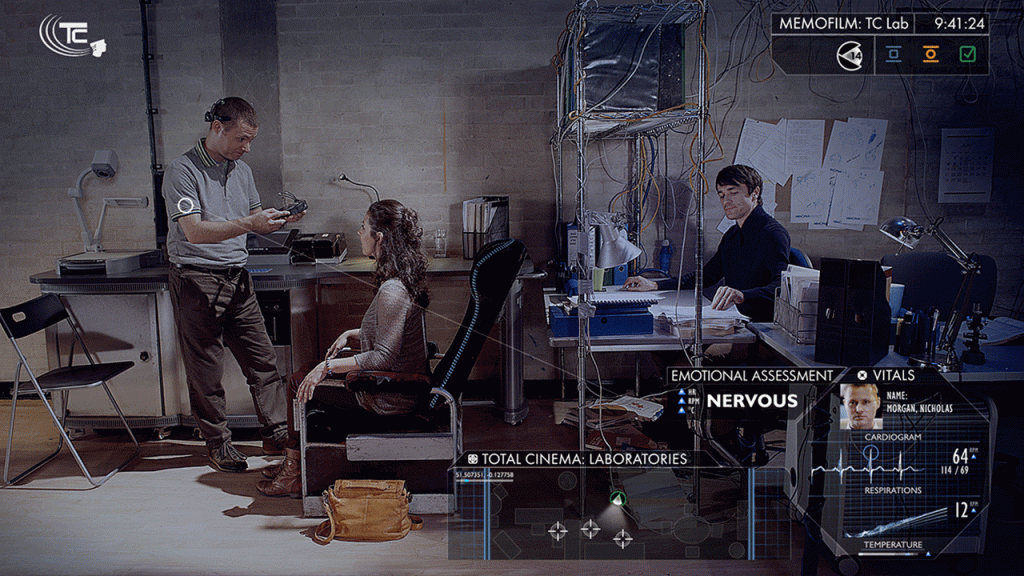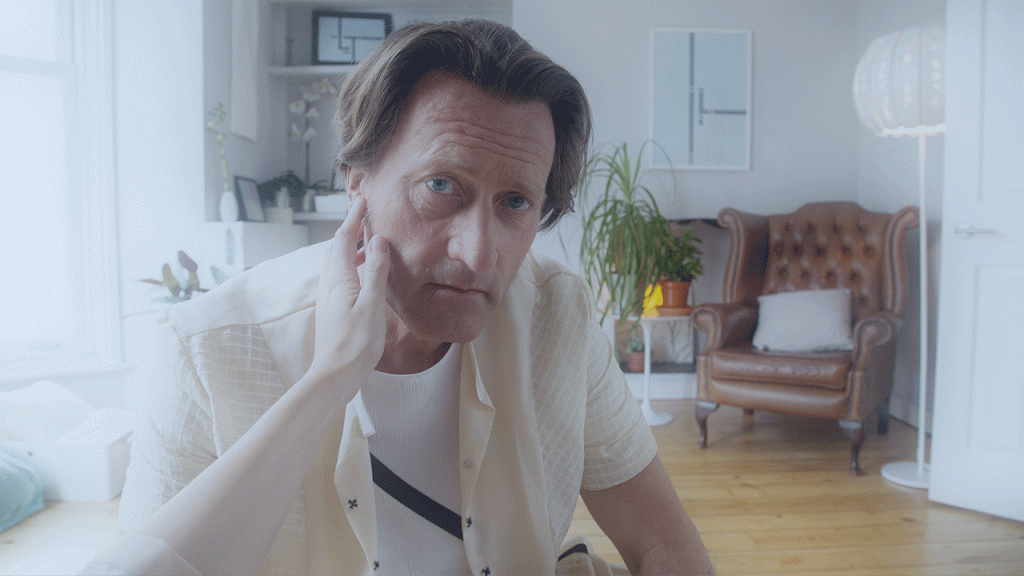As Virtual Reality becomes more advanced how will we continue to differentiate between the real world and artificial memories?
This is the question Mnemophrenia seeks to answer. It is a feature length film produced for a practice-based PhD and was directed, co-written and co-produced by Dr Eirini Konstantinidou, a Senior Lecturer in the Department of Literature, Film and Theatre Studies at the University of Essex.
Mnemophrenia first premiered in February 2019 at the 44th Boston Science Fiction Film Festival where it won the Festival Director’s Commendation (First Time Director) award. Although she has previously directed and written four short films, including two award-winning titles ‘Snapshots’ and ‘I Love You..?’, Mnemophrenia is her feature-length debut. Through collaboration with LA-based distribution company, Indie Rights, the film was able to be distributed through Amazon Prime in multiple different countries. These include the UK, USA, Canada, Australia, France and Greece and has recently become available on Youtube and Google Play.
The growth of Virtual Reality in Dr Konstantinidou’s vision of the future is told through three intertwined stories in three generations of the same family. A new psychological condition has forged as a result of Virtual Reality improving and virtual experiences becoming more realistic. This psychological condition is mnemophrenia.

The opening credits of the film define mnemophrenia as ‘a condition or a state characterized by the coexistence of real and artificial memories’. Its evolution is represented by each story as Virtual Reality progresses.
We are introduced to mnemophrenia as a new and rare condition in the story set closest to our own timeline, the ‘near future’. Jeanette Harper is describing her heartbreak after realising her first ever boyfriend was not even real. In the second act so many people have mnemophrenia that it has split society between the mnemophrenic and the non-mnemophrenic and people are even being born with the condition. By the far future, the condition has evolved to the point where its sufferers have begun losing a sense of their own identity. They are merging with the people they become within the virtual world – but this is also being seen as a possible next step in the evolution of the human race.

To further separate the three different sections, they were each filmed with a different cast and crew. The dialogue was mainly done using improvisation by the actors, so the three parts were filmed in the order they were set. Each cast of the second and third film watched what had been made previously so they could improvise realistic dialogue based on what their characters knew about the previous generations of their family.
Eirini explained that this was also partly to do with budget limitations and because of this, the project took eight years to finish. “I treated them as short films, so that people would be more willing to work than they would on a feature low budget film,” she said. But although each section was treated as a short film, the actors and crew would ultimately be credited in a feature length production which would be a payoff. “On one hand it solved some issues for me but at the same time it created more work in different ways,” Eirini said.
Today, Virtual Reality is becoming more widely used as the technology improves. Oculus VR were among the first to bring the technology into modern gaming with their Oculus Rift headset in 2016. Over recent years VR has become a commercialised hit for gaming consoles with Sony releasing their own Playstation VR headset that same year. Samsung and Facebook have become involved in the industry (Facebook Technologies became the parent division of Oculus VR in 2018) which brings the potential of VR expanding further outside of gaming. Apple are reportedly planning their own dabbling into Virtual and Augmented Reality; rumours are circulating that they are releasing a headset and glasses sometime within the next few years.

So, could Mnemophrenia become reality? Eirini believes so, “I interviewed neuroscientists, Virtual Reality specialists, academics and psychologists. I discussed with them how I imagined the technology, which is much more advanced than we have today but it could be a potential if we managed to get there. I asked them if the condition could be a reality and everybody said ‘absolutely yes’. If we reached the point where technology is as precise as I’m presenting in the film, it is definitely inevitable – because already our memory is full of flaws, we can’t remember anything as clearly as it actually happened. So, to tweak that and live in a computer game or VR experience that is almost as real as real life – then it would be very easy to become confused.”
Dr Konstantinidou used inspiration from various films dealing with the idea of memory and its link to technology including Total Recall, Johnny Mnemonic, Strange Days and The Final Cut. “It is essentially homage to all these films,” she explained. “But usually all these films are presenting a dystopia – a future where technology takes over and we are losing our humanity… I wanted to show something that doesn’t necessarily show a dystopia but shows something possible or, as I called it in my PhD, a ‘critical dystopia’ which can have the potential of something positive. I’m not presenting a utopia either but I’m leaving it to the viewer to decide what they think the future might be.”
Eirini is now focusing on her next project, a thriller-drama focusing on one character. “The idea is to film it in one-shot – it will be almost staged as a play,” she revealed. “It will make our life very difficult while we are making it but it is something that I would really like to try. I love one-shot films – I think they can be very intriguing and engaging and it works for the story that I would like to tell.”
You can watch the full Mnemophrenia film on Amazon Prime here and visit the official site for more information.